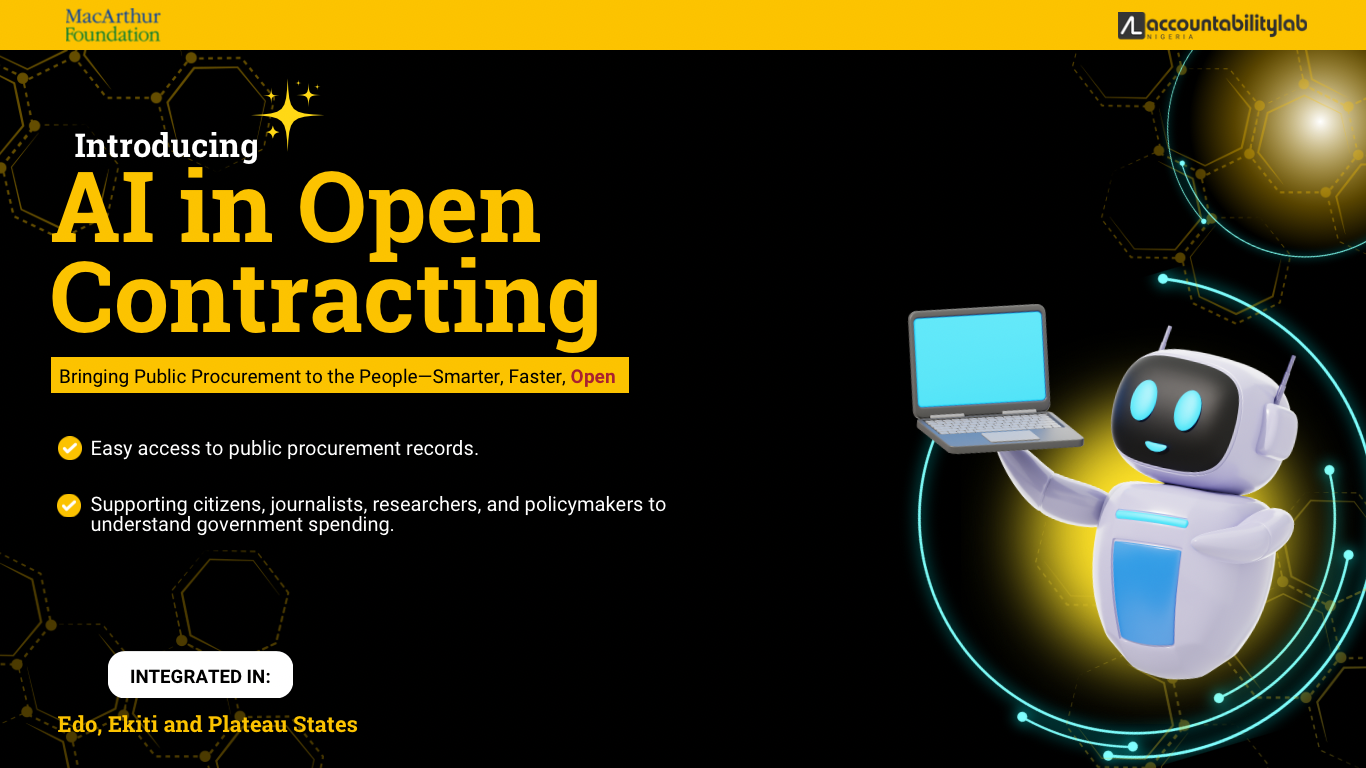NEWS
March 26, 2025

IN BRIEF
In Nigeria, limited access to public procurement data remains a major challenge, allowing inefficiencies and misuse of resources to go unchecked. If procurement data is inaccessible, how can the public ensure funds are used responsibly by the government and contractors? Data from the Public and Private Development Centre (PPDC) shows that getting procurement information through Freedom of Information (FOI) requests is often difficult. Over 91.84% of these requests either take more than 14 days to get a response or receive [...]
SHARE
In Nigeria, limited access to public procurement data remains a major challenge, allowing inefficiencies and misuse of resources to go unchecked. If procurement data is inaccessible, how can the public ensure funds are used responsibly by the government and contractors? Data from the Public and Private Development Centre (PPDC) shows that getting procurement information through Freedom of Information (FOI) requests is often difficult. Over 91.84% of these requests either take more than 14 days to get a response or receive no response at all. This highlights a serious lack of transparency in public procurement. Unpublished procurement information leaves citizens in the dark about how decisions are made and deprives them of the chance to track the progress of projects. A 2024 report by the Open Contracting Partnership highlights that poor data quality in public procurement impedes data-driven decision-making. Challenges such as the lack of unique identifiers, duplicated records, inconsistencies in contract dates, and incomplete data fields hinder citizens’ ability to monitor procurement processes effectively. This persistent lack of accountability in public procurement remains a critical challenge despite the adoption of frameworks such as the Public Procurement Act 2007 and efforts like the World Bank’s State Fiscal Transparency, Accountability, and Sustainability (SFTAS) program, inefficiencies, mismanagement, and fraud persist. These systemic issues also hinder competitive and fair business practices, limit oversight, and obstruct the government’s ability to deliver an improved healthcare supply chain.
As part of our strategic approach to making public procurement data easily accessible, up-to-date, and understandable to build trust, support citizens, and improve their active participation in public procurement processes through open contracting platforms, we recently developed a user-friendly AI-integrated platform in Edo, Ekiti, and Plateau States. We designed the tool to automatically extract information from scanned procurement data uploaded to the platform, transforming it into structured data with minimal effort. Additionally, the platform features an interactive chat function, allowing users to ask questions and access valuable information in real time. Designed with simplicity in mind, it does not require any technical expertise, making it accessible even to grassroots communities.
Imagine a community leader who wants to understand information about the renovation of a public healthcare facility in his community, they can simply type a question and receive clear, easy-to-understand responses without needing to navigate complex systems. The chat function ensures that anyone, regardless of their technical skills, can engage with public procurement data effortlessly.
The automation not only speeds up the publishing process, but it also makes sure that accurate procurement information is always available. This improves efficiency, lowers the cost of governance in public procurement processes, and makes administration easier. The automation’s natural language capabilities have made it easier to access relevant procurement data. It also provides tools for understanding public procurement processes and uses the red flag methodology to detect potential irregularities, supporting citizens, journalists, and civil society organizations in actively engaging in governance processes, ensuring procurement officers and contractors uphold integrity, fair procurement practices, and responsible business conduct. Citizens can now track how public funds are spent and identify contract awardees.
In Plateau State, Mr. Christopher Danladi, a procurement officer with the state’s Bureau of Public Procurement (BPP), noted that the AI-integrated tool is actively utilized to scan and simplify data uploaded to the platform, enhancing efficiency and accessibility. Similarly, in Edo State, Mr. Ezekiel Obazele, a public procurement officer with the state’s BPP, also one of our Integrity Icons identified through our work and celebrated for demonstrating ethical leadership in the procurement sector, he noted that the tool continues to improve procurement processes, ensuring an effective and transparent system. Additionally, the Director of Ekiti State’s BPP, Mr. Samuel Ogundare, another Integrity Icon, noted that the data visualization features of the platform streamline data on the portal. They all noted that the platform has significantly contributed to the effective project monitoring and capacity building for journalists, enabling accurate documentation and reporting. Looking ahead, these states plan to continue to adopt the AI-driven tool to further enhance data visualization and strengthen procurement processes. They have also adopted gender-responsive procurement practices, guaranteeing equal opportunities for women in contract bidding.
We firmly believe that Nigeria’s public procurement sector would benefit greatly from this AI-integrated platform, and we will work towards introducing this tool across all states to improve specific sectors, such as the healthcare supply chain, and ensure effective public service delivery. We therefore urge the government to adopt the AI-integrated platform as government officials, procurement officers, and citizens may struggle with technical complexities in e-governance platforms, which often require extensive training. However, our AI-integrated platform has an intuitive interface, a simplified dashboard, and automated reporting, making it easier for everyone to adopt and use effectively. It will potentially support the government to cut down costs by optimizing procurement decisions through data-driven insights. This will also make evaluation processes easier, supporting the government to achieve better value for money compared to other e-governance platforms, which primarily focus on transparency without offering optimization tools.
We are committed to contributing to Nigeria’s digital governance agenda by using an AI-integrated platform for improved governance. Be part of the change we seek as we use technology for real-time data analysis that enables the early detection of unethical practices, allowing for better public oversight and improved service delivery outcomes.
